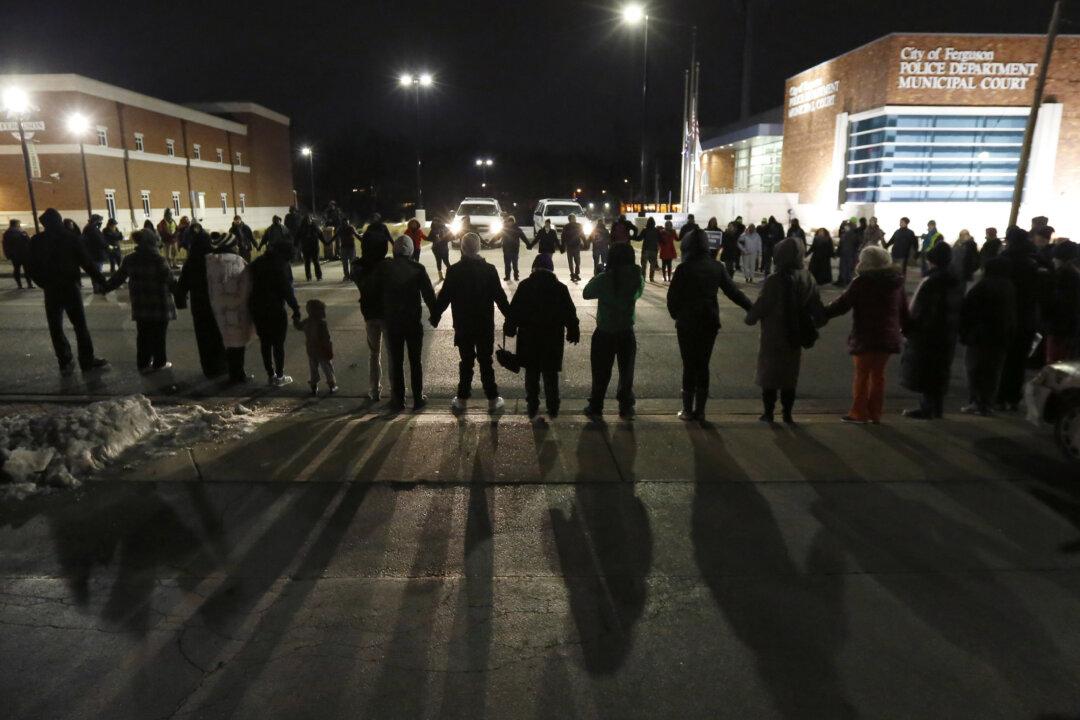Just two weeks before Michael Brown was shot and killed by a police officer in Ferguson, Mo.—prompting a federal investigation into the practices of the small suburb’s police force—the Department of Justice (DOJ) had released a report about the persistent abuses of the Newark Police Department in New Jersey.
Investigators discovered that 75 percent of the reported stops that Newark police conducted on pedestrians had no legal basis. Thousands of people were stopped for “milling,” “loitering,” or “wandering,” without any reasonable suspicion that they were engaged in criminal activity.
When people questioned why they were being stopped, or openly criticized officers for their actions, Newark police often arrested them on charges of obstruction of justice, resisting arrest, or other similar offenses.
About 80 percent of the police stops and arrests were against blacks, though they make up just 54 percent of the city’s population. Blacks were 2.5 times more likely to be stopped or arrested than whites, even in areas of the city where there were far fewer black residents.
These findings sound remarkably similar to the results of the DOJ’s investigation into Ferguson’s police, which were documented in a biting 102-page report released Wednesday.





